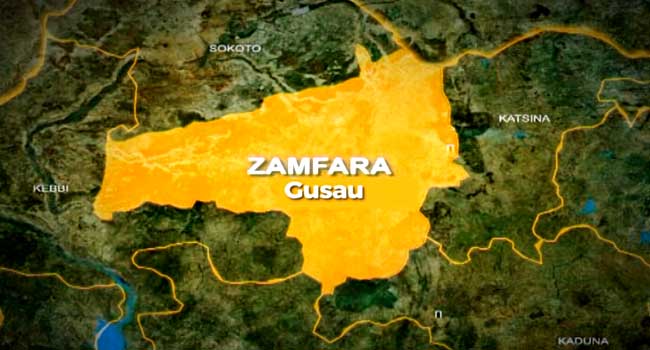How agric, manufacturing, mining, quarrying aided Nigeria’s exit from recession

*As economists agree Nigeria truly out of recession
*Tell FG what to do to sustain positive development
He was disappointed that, “some media organization (The DEFENDER not inclusive) are aiding negative responses to the nation’s exit from recession instead of going to the core of how we came out of recession, giving position paper on how both government and the people can synergize to sustain and improve on it. Going to the market in less than 24 hours to the announcement of exit from recession to ask traders of Igbo extractions to tell whether exit from recession has positively affected their lives is incisive,” he said.
Agriculture and manufacturing were the two key sectors that rescued Nigeria’s economy from recession in the second quarter of 2017. Other indices include mining and quarrying, which also contributed to the positive GDP.
The Gross Domestic Product (GDP) report released on Tuesday by the National Bureau of Statistics (NBS) showed that Nigeria has exited recession with positive growth of 0.55 per.

Although a Nigeria-based print medium which said it spoke to some Nigerian traders in Jabi market, Abuja, said they complained they had low patronage in 2015 and got it worse in mid-2016 and had not seen any impact in less than 24 hours of the NBS report of Nigeria’s exit from recession.
But a respondent of The DEFENDER faulted the media organisation’s attitude as its own response to what he said should be the most cheerful news so far coming from the National Bureau of Statistics (NBS) about the country now coming out of recession.
He was disappointed that, “some media organization (The DEFENDER not inclusive) are aiding negative responses to the nation’s exit from recession instead of going to the core of how we came out of recession, giving position paper on how both government and the people can synergize to sustain and improve on it. Going to the market in less than 24 hours to the announcement of exit from recession to ask traders of Igbo extractions to tell whether exit from recession has positively affected their lives is incisive,” he said.
According to the announcement on Tuesday of Nigeria’s exit from recession, which some of those that commented on it said should gladden many Nigerians, agriculture recorded stronger positive growth of 3.01 per cent during the period. The NBS identified crop production as the major driver of growth in the agriculture sector.
Generally, the growth in agriculture and manufacturing is gradually narrowing the gap between oil and non-oil GDP, NBS noted, showing further in the report that in real term, the Non-oil GDP contributed 99.11 per cent of GDP.
The report showed that oil GDP hit 1.64 per cent in second quarter of 2017, up from -11.63 per cent in second quarter of 2016 and -15.40 per cent in the first quarter of 2017 while the non-oil GDP grew at 0.45 per cent, up by 0.83 per cent points from the record of the first quarter of 2016.
Manufacturing grew for the second consecutive quarter in 2017 to stand at 0.64 per cent compared to 1.36 per cent in first quarter of 2017 and -3.36 per cent in second quarter of 2016.
Trade also aided the exit from recession as its growth contracted from -3.08 per cent recorded in first quarter of 2017 to -1.62 per cent in the second quarter of 2017.
Analysis of the report also showed that finance, insurance, electricity, gas, steam, air-conditioning supply and other services also aided growth of the overall GDP.
Mining and quarrying also contributed to the positive GDP as they grew by 1.65 per cent in the second quarter, pushing up the growth of the non-oil sector.
Some experts said this, may not be unconnected with the Federal Government’s policies in revamping agriculture such as promoting local cultivation of rice, tomatoes and other agricultural produce.
Economists call for caution
According to professor of economics and former Chief Economic Adviser to former President Olusegun Obasanjo, Ode Ojuwu, the exit from recession should not be a reason for government to relax on its good initiatives such as improving lending to the agric sector and infrastructure provision.
Professor Ojuwu said the growth recorded is too small to celebrate but calls for optimism.
What government needs to do is to do more in electricity supply, access road to farmlands, reduce post-harvest losses and improve security in the North East region.
He urged government against panic due to the rising food prices, as farmers are encouraged if they are getting more value from what they produce.
A financial economist from the University of Uyo, Professor Leo Ukpong, also advised the Federal Government to focus on the non-oil sector of the economy to consolidate on the current positive growth.
Professor Ukpong said government must continue to implement its policies and pump money into the economy to keep the country away from recession.
Another economist and a lecturer at the Department of Economics of Kaduna State University, Dr. Aminu Usman, warned that the Federal Government should not relax as the fundamentals of growth in the economy are still shaky.
He said to consolidate the current growth the Federal Government must intensify the recovery process and implement its expansionary growth.
“If anything happens to the oil market between now and December, we can return to recession. If anything happens in the Niger Delta area, we will be back to where we are coming from,” he said.
Dr. Usman said that the delay in the implementation of the 2017 budget is a risk that threatens the gains recorded in the last one year that pulled the country out of recession.
“We need to engage the international oil producers to ensure that this relative price stability is sustained and government must be more serious in the implementation of its fiscal policies,” he advised.
In his own reaction, the Director General of the Abuja Chamber of Commerce and Industry, Chijioke Ekechukwu, said that there were clear signs that the country was already out of recession even before the apex statistical body in the country announced it.
Ekechukwu said the Purchasing Manager’s Index is already above 50, an indication that manufacturing sector is growing well.
“With this, you just know that the economy is driving itself, especially through the real sector and the small and medium enterprises. Prices of Goods and services are gradually getting down,” he said.
He further said there is enough stability in the foreign exchange market unlike before, a development that is also stabilising prices of goods and services.
He said agricultural activities are increasing and people are beginning to have confidence in locally grown food, an indication that the GDP is getting better.
Lukman Otunuga, a financial expert with FXTM said: “The largest economy in Africa displayed its resilience yet again by growing 0.55% in Q2, despite suffering a painful contraction for five consecutive quarters. With Nigeria’s economic rebound powered by sustainable resources such as manufacturing, agriculture and trade, the overall outlook continues to appear quite encouraging.
“While oil was also a player in the nation’s recovery, it should be kept in mind this source of growth may be temporary, as Nigeria still remains in an ongoing quest to diversify its interests away from oil reliance.
“Sentiment towards the Nigerian economy is likely to receive a boost following the release of such positive GDP data, with investors across the globe and at home becoming increasingly optimistic over the nation’s outlook.” (DT/agencies)









